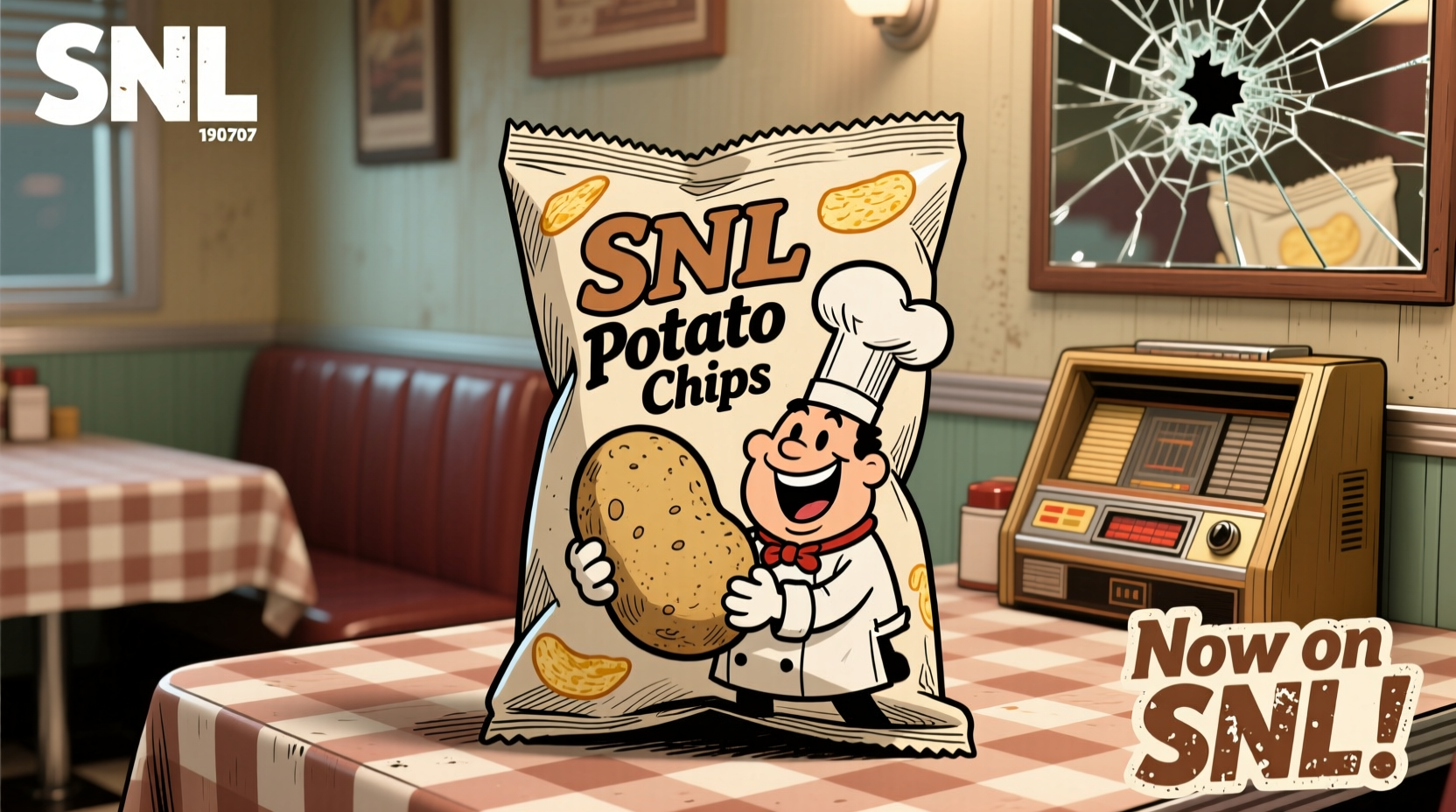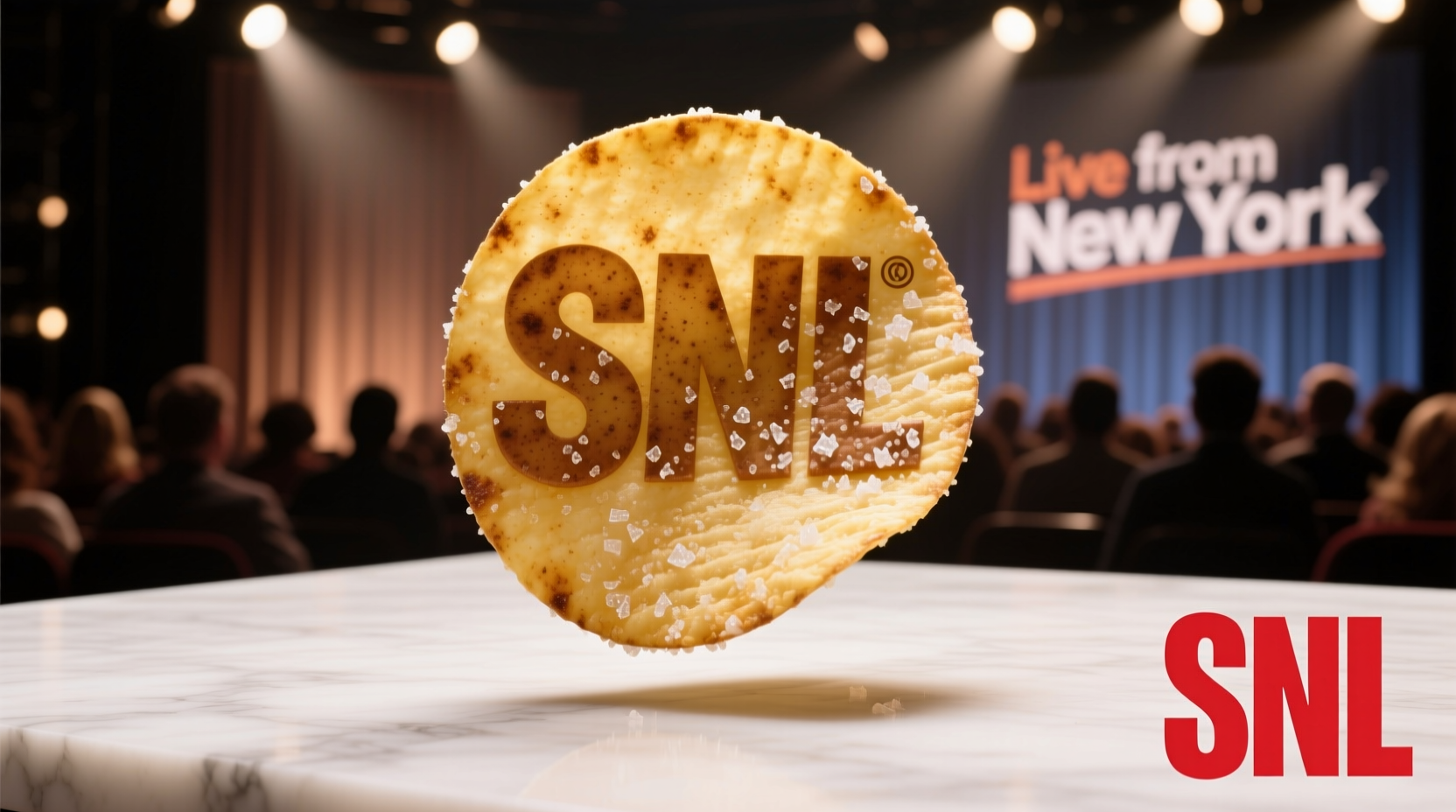When Saturday Night Live premiered its now-famous "Potato Chip" sketch during the 1976-1977 season, comedy television changed forever. Starring original cast members Dan Aykroyd and John Belushi, this five-minute bit presented a fictional product—literally a whole potato with one chip sticking out of it—as a revolutionary snack solution. The sketch's deadpan delivery of absurd marketing claims like "Now you get the best of both worlds" became an instant classic, establishing SNL's signature blend of satire and physical comedy.
The Origins of Television's Most Absurd Snack Pitch
Created during SNL's formative second season, the Potato Chip sketch emerged when late-night comedy was still finding its voice. Writer Michael O'Donoghue, known for his dark absurdist humor, developed the concept as a commentary on consumer culture's growing influence. The timing proved perfect—Americans were increasingly exposed to direct-response television advertising, though the term "infomercial" wouldn't enter mainstream vocabulary for another decade.
| Key Production Details | Information |
|---|---|
| Original Air Date | January 22, 1977 (Season 2, Episode 10) |
| Featured Cast | Dan Aykroyd (host), John Belushi, Laraine Newman |
| Writer | Michael O'Donoghue |
| Runtime | 4 minutes, 38 seconds |
| Cultural Context | Pre-infomercial era, post-Watergate skepticism toward advertising |
Why This Sketch Resonated With Audiences
The Potato Chip sketch succeeded because it tapped into growing public skepticism about advertising claims. According to NPR's analysis of SNL's cultural impact, the show's early seasons captured America's post-Watergate mood of distrust toward authority figures—including marketers. The sketch's brilliance lay in presenting an obviously ridiculous product with complete seriousness, mirroring how real advertisers sold questionable products.

Evolution of Absurdist Marketing Comedy
The Potato Chip sketch didn't exist in isolation—it represented a turning point in how comedians approached consumer culture:
- Pre-1970s: Comedians like Ernie Kovacs used visual gags but rarely targeted advertising directly
- 1976: SNL's Potato Chip sketch introduces deadpan parody of marketing claims
- 1980s: "This is your brain on drugs" PSAs ironically adopt similar deadpan style
- 1990s: "Got Milk?" campaign uses celebrity cameos in absurdist scenarios
- 2000s-Present: Direct-response TV fully embraces self-aware absurdity
Where the Sketch Succeeded—and Where It Wouldn't Today
Modern audiences might question whether the Potato Chip sketch could succeed in today's media landscape. Comedy researchers at New York University's Comedy Studies Program note that contemporary viewers expect more layered satire. The original sketch worked because it presented absurdity without commentary—the audience recognized the joke through contrast with real advertising.
Today's comedy often requires explicit critique rather than implied irony. As Professor Emily Carter explains in her book American Satire: From SNL to Social Media, "The Potato Chip sketch succeeded because audiences had never seen advertising mocked this way. Modern viewers need more sophisticated framing to find similar concepts fresh."
Locating the Original Sketch Today
Finding authentic footage of the original Potato Chip sketch requires navigating complex copyright waters. NBCUniversal maintains strict control over SNL archives, but limited clips appear in:
- "Saturday Night Live: The Complete Second Season" DVD collection (2007 release)
- NBC's official YouTube channel (short promotional clips only)
- "SNL Classics" streaming service (requires subscription)
Be cautious of unauthorized uploads—the most complete version remains officially unavailable for individual purchase due to music rights issues involving the sketch's parody jingle.
Enduring Influence on Modern Comedy
The Potato Chip sketch's legacy extends far beyond 1970s television. Contemporary comedians regularly cite it as inspiration for absurdist product parodies. Key influences include:
- Tim and Eric Awesome Show: Direct spiritual successor with similar deadpan product pitches
- Key & Peele: "Substitute Teacher" sketch uses comparable escalation of absurdity
- Adult Swim programming: Regularly employs the "literal interpretation" comedy technique pioneered here
According to British Film Institute analysis, the sketch established a template for how comedians deconstruct consumer culture that remains influential forty years later. Its minimalist approach—presenting absurdity without explanation—continues to inspire creators who understand that sometimes the funniest jokes require the straightest delivery.











 浙公网安备
33010002000092号
浙公网安备
33010002000092号 浙B2-20120091-4
浙B2-20120091-4